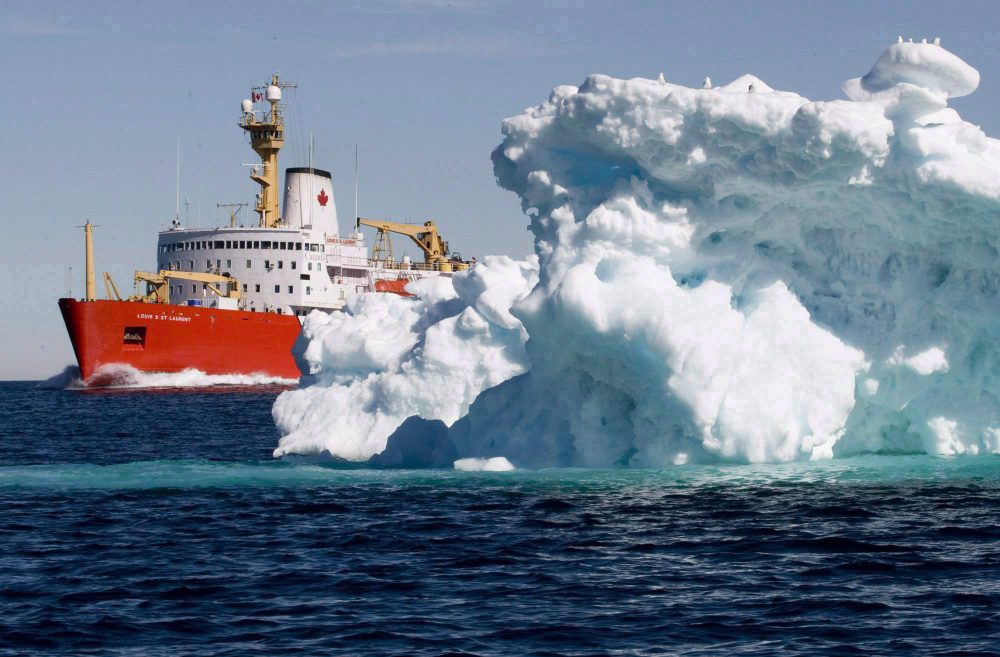New Arctic shipping database launched by Arctic Council working group

An Arctic Council working group launched a new shipping database this month that they say will help close ongoing knowledge gaps around circumpolar shipping.
The Arctic Ship Traffic Data (ASTD) database will include information on things like vessel traffic patterns, fuel use, air emissions, sea ice extent, meteorological and oceanographic conditions, and international regulations.
The project is overseen by the Arctic Council’s Protection of the Arctic Marine Environment (PAME) group which works to address pollution prevention and policy around marine protection.
“I am confident that the ASTD database will benefit PAME, the Arctic Council, and others by providing an invaluable tool to support a wide range of reports and analyses,” said Renée Sauvé, chair of the PAME, in a news release on Thursday, from Sweden.
“The ASTD will increasingly be pivotal as we seek to better understand the growth of Arctic ship traffic in the years to come.”
Non-commercial use only
Access to the database will be restricted to Arctic Council members and academic and research institutions, and will not be made available for commercial use.
At the moment, the ASTD includes data from 2005-2018, but will be regularly updated.

Examples of available data include the number of ships in over 60 ports and communities across the Arctic, as well as information on shipping activity in the exclusive economic zones of the various circumpolar countries, along with the areas governed by the International Maritime Organization’s Polar Code, a regime that came into effect in 2017 to ensure the safety of ships operating in circumpolar waters.
“PAME and the Arctic Council will use the data from the system to conduct analyses and develop projects that will benefit many different projects across working groups,” PAME, whose secretariat is based in Iceland, said in a statement on their website.
“With changes in the Arctic sea ice extent and projected changes and increase in shipping in the Arctic, the database will allow the Arctic Council to be at the forefront of monitoring trends and assessing any changes for use in its studies, assessments, analyses, and the development of recommendations that enhance Arctic marine safety and support protection of Arctic people and the environment.”
The data is gathered from a variety of sources including from the Arctic nations and from satellites, Sauvé said in the Thursday news release.
International forum
The Arctic Council is a forum made up of world’s eight circumpolar nations: Canada, Denmark, Finland, Iceland, Norway, Sweden, Russia and the United States; and six Arctic Indigenous groups; the Aleut International Association, the Arctic Athabaskan Council, the Gwich’in Council International, the Inuit Circumpolar Council, the Russian Association of Indigenous Peoples of the North and the Saami Council.
The forum was established in 1996 to work on sustainable development and environmental protection in the North.
The Arctic Council’s six working groups are made up of experts from around the world to examine issues ranging from environmental protection, to sustainable development, to emergency response in the Arctic.
Write to Eilís Quinn at eilis.quinn(at)cbc.ca
Related stories from around the North:
Canada: Canada’s Inuit make voices heard on Arctic shipping routes, CBC News
China: China opens bids for its first nuclear-powered icebreaker, The Independent Barents Observer
Finland: Cold winter brings out Finland’s icebreakers ahead of schedule, Yle News
Russia: Russian Arctic shipping to be regulated by Rosatom, The Independent Barents Observer
Sweden: Swedish icebreaker reaches North Pole for climate study, Radio Sweden
United States: World maritime body approves first Arctic ship routing measures, Radio Canada International



